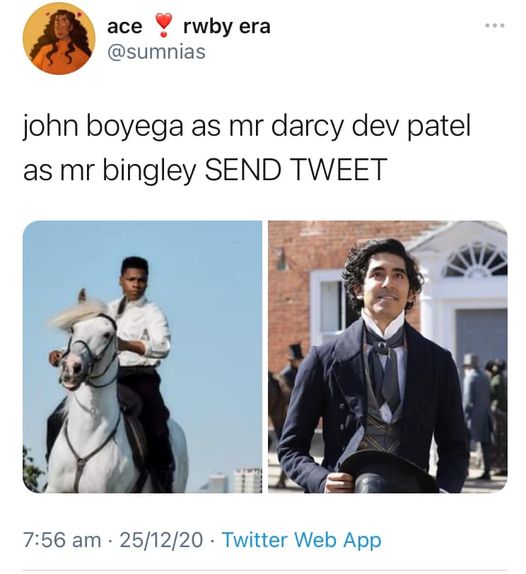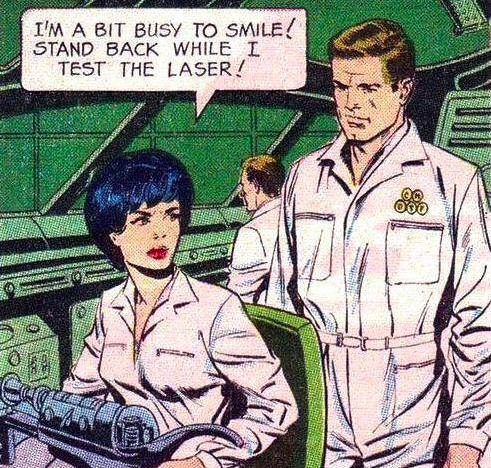It’s a mess of a day, but there’s hope.
Category Archives: Uncategorized
do not want
Things i don’t need:
– Julian Assange in my country
– to hear Vivaldi’s Four Seasons in a netflix show again
– any more moisture in the air
– Brett Whitely.
introvert/extrovert
The ‘Myer Briggs Type Indicator’ was invented by Katharine Cook Briggs and her daughter Isabel Briggs Myers in the very early 1920s. They weren’t psychologists or trained researchers, and they invented the types without doing extensive testing or research.
‘Types’, in the Myer Briggs world, are inflexible, and predictive. Which is why people like this test for deciding what sort of jobs kids should do when they grow up. In this schema, we are a combination of traits, and we self-identify our traits. These traits are:
1. extraversion/introversion
2. sensing/intuition
3. thinking/feeling
4. judging/perceiving
The theory has since been disproved, critiqued, and generally shat on by anyone who’s done any extensive work with real human beings (the wikipedia article has some nice links). Or stopped and thought about it properly. But people luuuurve to self-identify their personalities.
The extrovert/introvert dichotomy that’s been pounding through interweb listicles and reasons-why-you-love/hate-iso articles is one of the Myer-Briggs types. It’s a totally made up rubbish idea that you are either an extrovert or an introvert. Humans are far, far more complex. But people really really like this idea of being one or the other.
If I was going to a 1920s costume party, I’d go as both Myer and Briggs. Because the 20s were wacked as fuck.
If you do not speak out against injustice, are you complicit in injustice?
A facebook friend posted this comment:
Both sides need to realize that the people who make up the other side are not evil. There’s also nothing wrong with being in the middle or not on a side at all. People are not binary.
With a link to the article poll: Most Democrats see Republicans as racist, sexist.
Here is my comment.
I dunno. When it comes to issues like refugees, migrants, trans rights, gender, etc, I do actually think some positions are evil. Our (Australian) government’s offshore detention program for refugees is straight up evil. These are concentration camps with deliberate, conscious torture of men, women, and children.
This is racist. It is inhumane. It is evil.
Our (Australian) government’s Norther Territory Intervention is evil. It is racist and structurally unjust.
There are plenty of other examples.
Whenever this issue of ‘evil’ and politics comes up, I think of Hannah Arendt’s concept of the ‘banality of evil’. Laws and legislations are not politically or ideologically neutral. They have real live effects on people’s lives.
There is something wrong with not standing up for human rights. There is something wrong with not critiquing unjust and cruel legislation.
It is wrong to not take a stand, and to not have an opinion.
The conversation continued with this response
You are right that political beliefs are often not morally neutral, but there is a large difference between “you have an immoral belief” and “you are immoral for having that belief.” That is certainly not to say that an assumption of innocence is always correct or even a good idea, but when it is the default assumption then we fail to love each other or help our country.
I disagree with this opinion. The clear example is “If you hold racist beliefs” then “you are racist.” Whereas an individual person might affect a limited number of people, a politician making and supporting legislation which is racist affects millions of people.
This is where Arendt’s “Eichmann in Jerusalem: A Report on the Banality of Evil” becomes useful. She was reporting on the trial of Adolf Eichmann for warcrimes during the holocaust. Eichmann himself, Arendt argues, didn’t seem to harbour particularly extremist views. It was more that his actions, simply ‘carrying out his job’ were _consequently_ evil.
This is my main take away from this text (which I admit is probably a weak reading, as I’m not super familiar with Arendt’s work. Public servants, politicians, and other people _just doing their jobs_ are capable of great evil.
As Arendt notes (and I quote the wikipedia page):
“U]nder conditions of terror most people will comply but some people will not, just as the lesson of the countries to which the Final Solution was proposed is that “it could happen” in most places but it did not happen everywhere. Humanly speaking, no more is required, and no more can reasonably be asked, for this planet to remain a place fit for human habitation.”
Not all of us will commit horrendous acts. But some of us will and do.
So I believe that if a politician chooses to contribute to race hate, misogyny, oppression, and other despicable acts, either directly through the construction of legislation or discursively, through the things they say, then they are hateful. Or, in other words, if they say and do evil things, then they are, necessarily, evil. And as Arendt says, this evil may be utterly boring and banal. But it is still evil.
When I was doing work on media coverage of women MPs in Queensland (a very conservative state in Australia), I was struck by the continuum of racism at work. There were clearly extreme examples of racism and race hate (Pauline Hanson was one of them), but racist discourse was actually more complex. The then-prime minister John Howard articulated theories about race and identity which were identical to Hanson’s. He just used bigger words, was a man, and was the prime minister with a political party behind him. But Hanson was always positioned as a political ‘maverick’ and extremist.
Both were saying and doing evil things, but I think Howard’s actions were more influential and ‘more evil’ than Hanson’s, because of his reach and influence. And role in policy making in government.
But referring to the linked article in the OP (and I’m not sure we can rely on that for useful data), “a third of all Americans say they’d be disappointed if a close family member married someone whose partisanship didn’t match their own.”
In an objective moment, this seems like a radical and intolerant position. But we do not operate in objective spaces; we are always subjective. If my family member wanted to marry someone who actively and vocally supported a hard right nationalist front type political party (ie neo-nazis), I’d be pretty upset. Especially if my partner was black (I’m a white woman).
In an Australian context, though, things are a little different. Our two major political parties are currently competing for Most Morally Absent. Both have supported and participated in setting up offshore detention, the Northern Territory Intervention, etc etc etc.
Even issues which seem less ‘dangerous’ are problematic. A smaller government requires the dismantling of state-run public services like health care, education, national parks. A reduction in taxes means a reduction in funding for public services like the maintenance of roads and railways. I can’t really speak to the matter of states’ rights, as the Australian and American understanding of federalism and states is so different.
…nb I am referring to the Holocaust and anti-semitism specifically, as the current push towards far right politics and the rise of nationalism, in addition to race-based legislation and the increasing power of the police is just a bit too familiar.
This is not a new thing: we have seen this before in Germany. We should be very concerned.
Look at your partner
https://www.youtube.com/watch?v=um0VleA8jRE&feature=youtu.be&t=15m16s
“During the whole time, I’m lookin at my partner. You know like, you dancin on the floor with a young lady, for all night long, you be dancing. You don’t wanna be lookin all around. There’s a young lady in front of you. Pay attention to her. Look at her. You know, you’re dancing. Hey baby. You know, one of those things like that. You wanna get down with that.”
Yes, it’s heavily gendered and cishet brotalk. But this is _social_ dancing. Here, Frankie is talking about connecting with his partner as a human being, someone he’s interested in. Whether you want a cup of coffee with your partner, or you just want to make contact with another human, treat them like a real, live person. LOOK at them.
Too many white lindy hoppers today care more about long dead black musicians and dancers than they do about the real, living black people in their own neighbourhoods. They care more about the idea of these black people – a myth of black jazz – than they do about actual real people.
A small gesture of great worth
Big dates this week:
27 May: 50th anniversary of the 1967 referendum.
90.77% of the votes were cast in favour of including aboriginal Australians in the census. That means that on Saturday it will only be fifty years that aboriginal Australians (who’d been here for > 40 000 years) have been counted as Australians.
26 May: Sorry Day.
This is an important one. On this day we remember and commemorate the mistreatment of Aboriginal Australians. One the 26th May 1997 the Bringing Them Home report was tabled in government. This report officially described and recorded facts of the Stolen Generation. Where aboriginal children were taken from their families by white governments, and placed in orphanages (to later work in domestic slavery), or with white families.
We need to remember these stories because aboriginal kids are still being removed from aboriginal families by white governments.
I always feel that Sorry Day is an important one for me, as a white Australian. I wasn’t born here, and I became a citizen in the 90s. I chose to become Australian. Sorry Day gives me a chance to properly express my sadness and just how sorry I am about Australia’s history. I like the gesture of an apology. You don’t have to take responsibility for past actions (though some of us should). You just say to someone, “I care about your people and our history. And I want to tell you I regret the past, and I want to do better, now.”
One of my favourite symbols is the handful of dirt Whitlam gave Lingiari in 1966. And Paul Kelly’s song From Little Things always make me tear up:
There’s something about a small gesture that gives someone something of great worth. That’s why I like Sorry Day. You can give someone an apology, and they don’t owe you anything in return, you just let them know. You speak up, tell people where you stand.
Shit that gives me the shits
- Male DJs mansplaining jazz history and wanking on and on about shellac and vinyl, but being shit at reading a crowd;
- All safe space and OH&S workers on events and in dance organisations being women;
- Male dance teachers’ names being listed first in event PR;
- Dance classes for ‘follows’ being all about how to do swivels;
- ‘Musicality’ classes being a special class, not just EVERY DANCE CLASS;
- Lindy hop teachers who don’t talk about OGs like Frankie Manning because they don’t know anything about Frankie Manning (and then brag about it);
- Mansplaining international teachers who drop into discussions between local teachers like they’re the fucking pope, then proceed to mansplain inclusivity in local teaching practice. Even though they haven’t taught locally for years;
- Teachers who don’t play actual swinging jazz in their classes;
- Swing DJs who don’t play actual swinging jazz in their sets;
- Musicians who drink too much on the job and so suck at their job;







